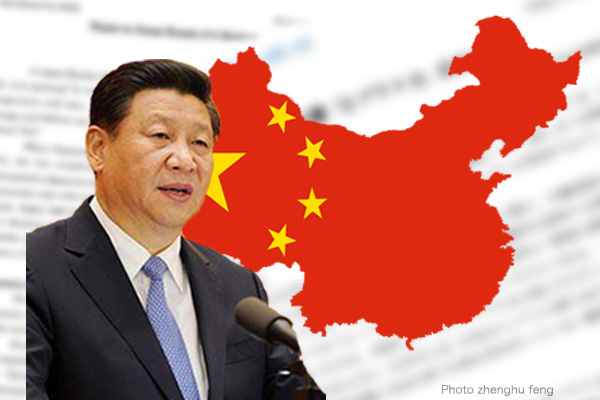On October 31, the Chinese Communist Party concluded the fourth plenary session of the 19th Central Committee and released a 6,000-letter communique spelling out future domestic and foreign policies and challenges.
While listing cryptic terms such as “seeking to modernize the capacity for national governance system,” the communique reiterated the government’s policies of “retaining the formula of one nation and two systems in Hong Kong” and “opposing Taiwan’s independence.” However, I was surprised to find the communique making no mention of the Belt and Road Initiative that has been the Xi Jinping regime’s flagship policy for building a giant economic bloc.
BRI might be scaled down
I remembered that soon after I began to work as a Beijing correspondent more than 10 years ago, my senior told me to search words that disappeared from a communique of the plenary session of the CCP Central Committee. “The communique collects views of various groups within the party, thus frequently includes contradictions and inconsistent views. But, if any reiterated word disappears from the communique, it may mean a significant policy change or possibly a signal of political crisis.”
The BRI was announced in 2013 with the start of the Xi Jinping regime and has been publicized as the most important pillar of President Xi’s foreign policy. A platform adopted at the CCP National Congress in 2017 stipulated the thrust of the BRI. However, the BRI has been of bad repute in the international community. Western countries have criticized the Chinese initiative as causing debts to developing countries and possibly being used for military purposes. Even within China, the BRI has been branded as producing no economic effect while wasting massive money.
Commenting on the absence of the BRI from the latest Central Committee communique, a Beijing source close to the CCP said: “At a time when many BRI -related projects are going on throughout the world, the BRI will not be abandoned soon. Undoubtedly, however, its priority has declined for the Xi regime. The initiative may be scaled down in the future.”
Xi failing to close ranks
As the U.S.-China trade war has gained momentum since last year, China’s economic slump has been prolonged. The Xi regime’s failure to come up with any effective countermeasures has been said to have caused growing discontent within the party. Succumbing to the pressure, President Xi may have effectively abandoned the costly BRI reputed badly at home and abroad.
If the regime abandons its most important policy, however, it may inevitably fail to close ranks. Before the fourth plenum of the 19th CCP Central Committee, multiple Hong Kong newspapers reported that a young cadre seen as a potential successor to President Xi could join the party leadership, indicating an intraparty struggle toward a post-Xi era. In a run-up to the next party Congress in 2022, the pro- and anti-Xi factions are likely to intensify struggles with each other.
Akio Yaita is a deputy foreign news editor at The Sankei Shimbun


